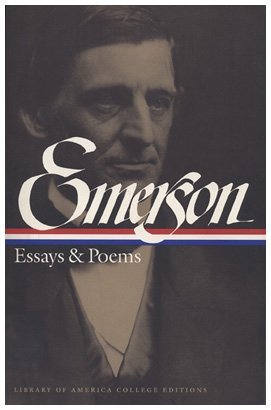
Self-Reliance: An Excerpt from Collected Essays, First Series
Book Description
Dare to trust your own voice in a world that demands conformity. Ralph Waldo Emerson ignites a revolution of thought in "Self-Reliance," a powerful excerpt from his acclaimed essays. With every word, he challenges the status quo, beckoning individuals to awaken their spirit of independence and embrace their true selves. This compelling manifesto pulses with urgency, urging a break from societal chains and igniting the flame of self-discovery. As the tension mounts between personal beliefs and external expectations, one question looms: What if the key to a fulfilled life lies in the courage to stand alone?
Quick Book Summary
"Self-Reliance" by Ralph Waldo Emerson is a stirring call to embrace individuality and intuition over conformity and societal pressures. Emerson argues that personal authenticity is the path to inner fulfillment and creative power. He warns against the dangers of imitation and urges readers to trust themselves, even in the face of misunderstanding or criticism. Emerson's essay extols the inherent genius in every person, emphasizing that greatness comes from self-trust and steadfast adherence to one’s convictions. Through poetic language and compelling rhetoric, he challenges readers to break free from the limitations imposed by tradition and to cultivate an unwavering faith in their own inherent wisdom. "Self-Reliance" remains a foundational work in American philosophy, inspiring generations to seek originality and independence of thought.
Summary of Key Ideas
Table of Contents
The Importance of Individualism
Emerson begins by asserting the paramount importance of individualism. He posits that each person possesses unique gifts and insights that can only be realized through self-trust and authenticity. Rather than looking to others for approval or imitating past figures, people should honor their own ideas and contributions. The act of truly being oneself connects a person to their deepest source of creativity and fulfillment, allowing their inner genius to shine. By valuing their own experience, individuals contribute something original and meaningful to the world.
Trusting in Personal Intuition
Central to Emerson’s philosophy is trusting one’s intuition. He views intuition as a direct line to truth and wisdom, superior to logic alone or inherited knowledge. Emerson encourages readers to listen to their inner voice, even when its message contradicts popular opinion or accepted doctrine. He argues that societal customs and established authorities often obscure genuine understanding, making it vital for individuals to prioritize their personal insights. By doing so, they unlock new perspectives and possibilities.
Critique of Conformity
A major theme in the essay is Emerson’s critique of conformity. He believes that conformity stifles growth, creativity, and authentic self-expression. Societal expectations pressure individuals to suppress their true selves in favor of fitting in, undermining genuine fulfillment. Emerson exposes the pitfalls of blindly following traditions and seeking validation from others. According to him, greatness is unattainable if one merely imitates others; it requires the bravery to stand apart and risk misunderstanding for the sake of personal truth.
Nonconformity and Greatness
Emerson associates nonconformity with both greatness and moral courage. He provides examples of great thinkers and leaders who have braved isolation and misunderstanding to pursue their unique paths. For Emerson, being misunderstood is often a marker of originality and greatness. He claims that the most influential individuals—such as Socrates, Jesus, and Galileo—defied prevailing norms and followed their convictions. Therefore, embracing nonconformity is not only an act of self-realization but also of service to humanity, as it expands what is possible for all.
The Role of Consistency and Integrity
Finally, Emerson warns against the trap of consistency for its own sake. Rather than feeling beholden to past statements or rigid beliefs, he advocates for living with integrity in the present moment, embracing change and growth. He notes that true integrity arises from aligning thoughts and actions with current convictions—even if these differ from one’s past views. Emerson’s message is ultimately one of courageous self-acceptance and faithful devotion to one’s evolving self, celebrating the freedom and power found in genuine self-reliance.
Download This Summary
Get a free PDF of this summary instantly — no email required.





